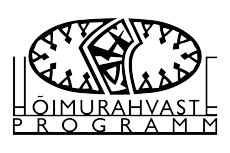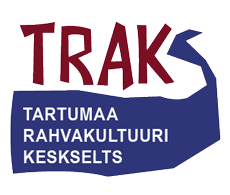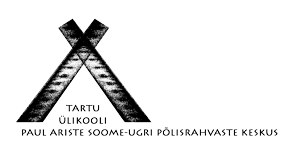Keitän õzrassa olutta
(The Uninvited Rooster)
Väike Hellero
In Votian
Keitän õzrassa olutta, olutta,
makuvettä malta’assa.
Kutsun kurõd, kutsun käred,
kutsun kuuzõssa jumalad,
petäjisä peene herra.
Jäi se kukko kuttsumatta,
esivalta vaatimatta.
Kukko suuttu ja vihassu,
nõssi sõa sõrmissa
i kanzaa kantasoonissa,
da väe varpahazissani.
Elä suutu, kukko parka,
Õrrõll onõ sinu õsa,
parrõll onõ sinu pala:
sata sirka sääriluita,
kõlmõt konna tšültšiluita,
tšärpäize peräpakarad.
In English
I’m making beer from barley,
Malt brew from malt.
I’ll invite cranes, I’ll invite woodpeckers,
I’ll invite gods from the fir tree,
Small mister from the pine tree.
The rooster was not invited,
The man of power not summoned.
The rooster got angry and mad,
Brought war from its fingers,
People from its heel tendons,
An army from its toes.
Don’t get angry, poor rooster,
Your part is on the perch,
Your lot is on the crossbeam:
A hundred shinbones of grasshoppers,
Three frog ribs,
The buttocks of a fly.
In Votian written language
Keitän õzrassõ õluttõ, õluttõ,
makuvette malta’assa.
Kutsun kurõd, kutsun käred,
kutsun kuuzõssõ jumalad,
petäjisse peene herra.
Jäi se kukko kuttsumattõ,
esivaltõ vaatimattõ.
Kukko suuttu ja vihassu,
nõssi sõa sõrmissõ
i kanza kantasoonissõ,
da väe varpahazissani.
Elä suutu, kukko parkõ,
Õrrõll onõ sinu õsa,
parrõll onõ sinu pala:
sata sirka sääriluita,
kõlmõd konna tšültšiluita,
tšärpäize peräpakarad.
The song is mocking a rooster who was not invited to the birds’ wedding. The rooster is angry and demonstrates its authority, but others continue to ridicule it. The motif of an uninvited big bird may have its roots in the mocking of large and powerful, and according to old beliefs, mythological beings—a motif which can be encountered also in other Kalevala-metric songs. In Estonian songs, it is usually a harrier who is not invited to the birds’ wedding or christening.
The song is sung to a popular melody of a dance song and Oudekki Figurova has described that it was performed by dancing in the circle: Karavanaz naizõd mennä, mennä ümperikkua i tantsita. Tšäsi puuska panna, i pollõ raputõta. (‘Women go in a line of procession, forming a circle, and dance. One hand is held on the hip, shaking the apron’, see also Tehkää üksi ümbärikko, Wedding songs.)
T Oudekki Figurova, Rajo (Ariste 1986: 37, 71).
M Oudekki Figurova (Eino Kiuru 1968, Vaina Mälk 1969, Ada Ambus 1970, Rüütel 1977: 237–238); Tatjana Jegorov, Ropsu, and choir (Lauri and Aili Laiho-Simonsuuri 1937, ERA, Pl 113 B1).

Oudekki Figurova feeding crows with white bread. Her crows were so pampered that they wouldn’t eat rye bread. Photo: I. Tõnurist, 1966 (VE X 215 (19d)).





